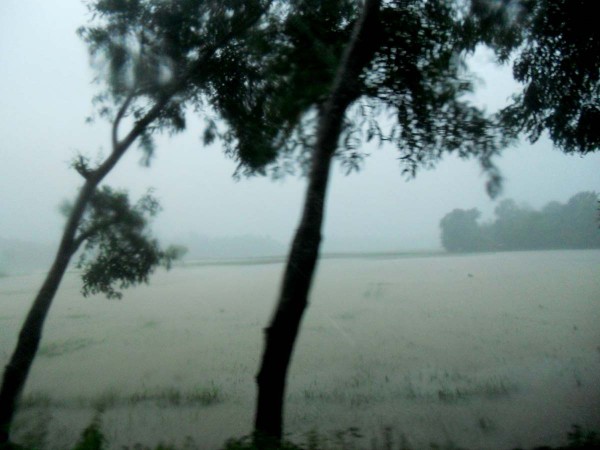Guwahati: Asia-Pacific Forum of Environmental Journalists (APFEJ) has announced it is placing an emphasis on the development of an advanced national and international early flood warning system to prevent casualties and loss of properties to the greatest extent. The umbrella group of environmental journalists, as a forum, urges the respective governments of Asia Pacific region to initiate such as a scientific system that is shared with neighbouring nations.
By Nava J. Thakuria
Speaking about the recent floods in northeast India, the forum expresses concern that the natural calamity has snatched the lives of over 150 persons in Arunachal Pradesh, Assam and Meghalaya. The last flood wave just before the autumn festival, had affected millions of people in the region surrounded by Nepal, Bhutan, Tibet (China), Burma and Bangladesh.
The respective provincial government sources disclosed that thousands of villages were inundated in the last week of September damaging vast areas of croplands. Moreover, the flood and erosion rendered few lakhs of families homeless and many took shelter in the relief camps.
Assam remained the worst sufferer as the heavy rainfalls in Arunachal Pradesh and Meghalaya made the flood situation grave in the State. This year while Arunachal faced a severe flood in August losing 56 people to the disaster, Meghalaya witnessed unprecedented rainfall and floods in its Garo hills during the last week of September that killed 55 people and affected a thousand villages.
Also, Assam lost 67 persons this year due to flood related calamities. Similarly 4,446 villages of Assam were inundated directly affecting 42 lakh people and damaging 4 lakh hectare of crop areas. Around 55,000 houses were also completed damaged and over 7 lakh people were rendered homeless because of flood furies in Assam during 2014.
“The incessant heavy rainfall in Meghalaya and Assam together left a trail of devastation in the Garo hills and also huge areas of western Assam on the southern bank of the Brahmaputra. Even most parts of Assam’s prime city Guwahati remained under water for many days adding endless woes to the citizens,” said Quamrul Chowdhury, chairman of APFEJ, headquartered in Dhaka.
An affective flood warning system among the provinces of northeast India could have prevented many casualties in Assam as well as the damage in northern Bangladesh as the waters run thorough the Brahmaputra and Barak rivers to the lower riparian country, argued Chowdhury.
APFEJ, while predicting frequent natural calamities in the future due to climate variability, appeals to the concerned governments to adopt policies at the local level for that will contribute to an international arena for the effective mitigation of natural and man-made disasters.






